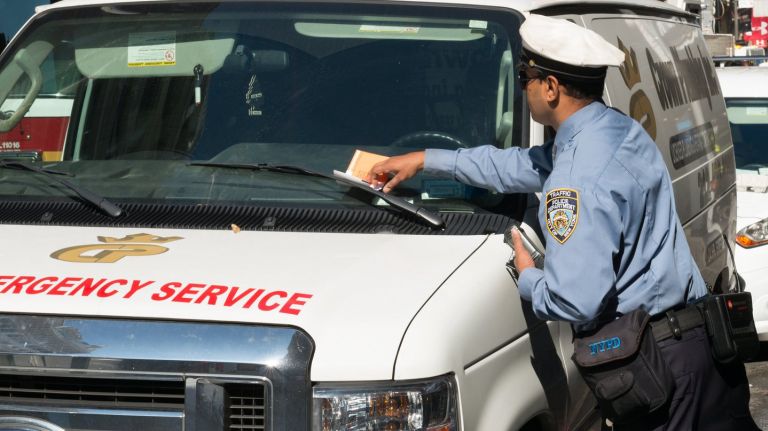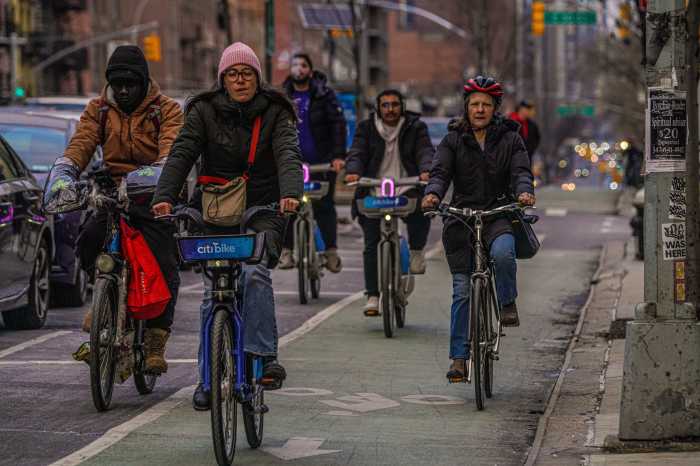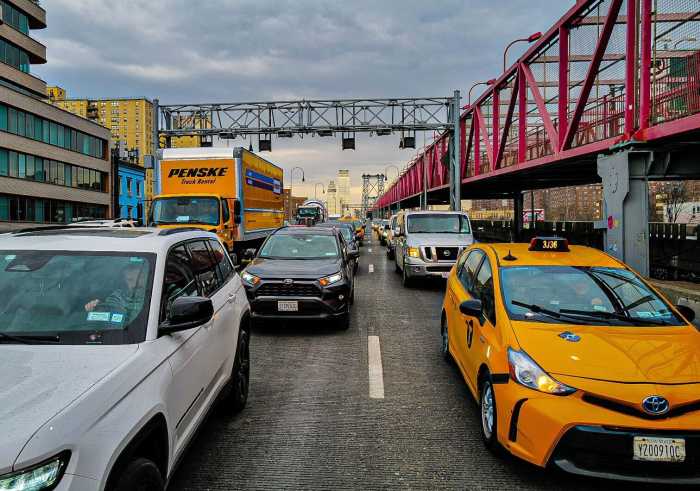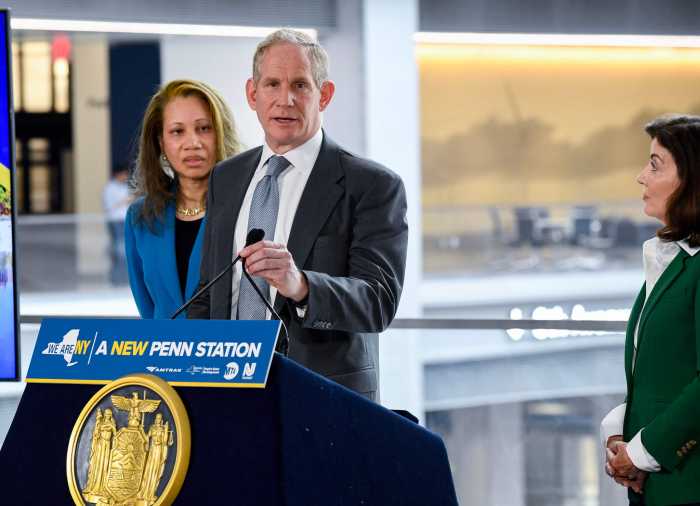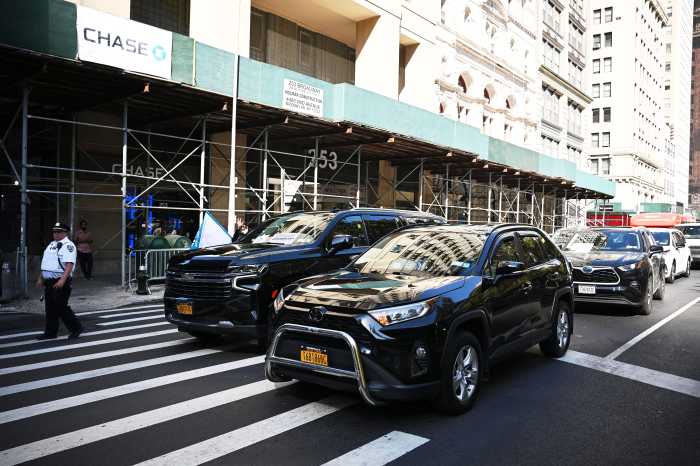For traffic enforcement agents (TEAs), the thought of the NYPD being defunded by as much as $1 billion in the next budget comes with concerns their role will be transferred to the city Department of Transportation.
Members of the force and the unions representing them say this signals an effort by City Council to turn back the clock to just a couple decades ago when many TEAs were part of DOT, an experience that left a bad taste in the mouth of some. Not only that, but it would not serve the goals of police reform, they say.
Tuesday saw the launch of a campaign by these NYPD members to ensure that they remain as law enforcement officials, come what may as the City Council deliberates on re-envisioning crime and role cops play in stopping it.
“We know that if we lose NYPD status, things will only get worse. If we leave the NYPD, the number of physical assaults and insults against us will increase,” a petition from the Communications Workers of America Locals 1181 and 1182 said. “But this proposal does nothing to reform the NYPD. Instead, it simply shifts budget costs from one agency to another. It will have no impact at all on the very real issues that must be addressed if meaningful police reform is to take place.”
Jennifer Fermino, a spokesperson for the Council Speaker’s office, however, said there is no intention split traffic enforcement off from NYPD.
“The Council is not pushing to move traffic agents out of NYPD,” Fermino said.
According to the union, TEAs earn between $41,000 and $50,000 per year, while also being the victim of more than 100 reported assaults on an annual basis.
Prior to being being transferred to the NYPD in 1995, TEAs worked under the umbrella of DOT. These officers, hoping the respect that comes with wearing the badge would give the some clout with the public; something that translated to safety while enforcing traffic laws.
Ricky Morrison, a national rep and temporary administrator for Local 1182, told amNewYork Metro that prior to 1995 there were over 600 assaults on agents every year when they were with DOT. He called any effort to remove TEAs from NYPD was “smoke and mirrors” that served no real change which the union supports.
“They deeply believe that the uniform reduces the public’s inclination to assault agents, who in spite of their status in the NYPD, continue to suffer significant workplace violence,” a union letter to City Council stated. “And they firmly believe this problem will worsen if the agents lose their role as members of the NYPD.”
Other letters to Johnson and Mayor Bill de Blasio have also been issued by the CWA.
Activists and elected officials have piled on their support for defunding NYPD – which has the highest budget in the city at $6 billion – since the call came up following the death of George Floyd with different takes. City Comptroller Scott Stringer has said $250 million should be removed from the department’s budget every year for four years until this goal is reached.
But as the budget negotiations continue, Council Speaker Corey Johnson has thrown his support behind the $1 billion being allocated to other programs that will uplift low income communities that have experienced over-policing. Majority Leader Laurie Cumbo also backs the movement.
As for the rest of City Council, police reforms have proven popular among members who may be feeling the pressure from constituents as the Black Lives Matter movement has taken on new level of intensity with protests that began on May 28 and continued throughout much of June.
Recently passed by City Council was its own legislation that banned the NYPD from implementing chokeholds in the process making an arrest, which cause the death of Eric Garner in 2015.



